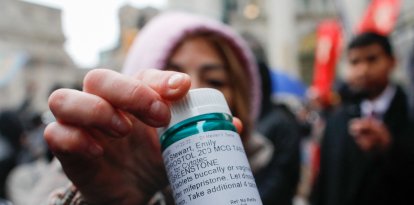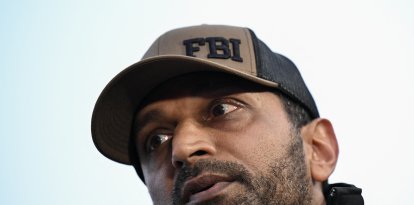Ayaan Hirsi Ali calls on the US to designate the Muslim Brotherhood as a terrorist organization
In a recently published article, the activist and writer argued that because of its radical aims and deceptive tactics, this radical Islamist group should be treated as an existential threat.

Ayaan Hirsi Ali
Renowned Somali-Dutch-American writer and activist Ayaan Hirsi Ali called on the United States to designate the radical Islamist group Muslim Brotherhood as a terrorist organization.
In an article published recently in two installments, which can be found here and here, Ali argued that because of its radical aims and deceptive tactics, the Muslim Brotherhood should be treated as an existential threat, similar to revolutionary Marxists during the Cold War, and possibly criminalized on grounds of sedition.
The intellectual pointed out that the Muslim Brotherhood is an influential organization that promotes a Government based on Sharia law and uses democratic institutions to achieve its goals. She added that some Muslim countries, such as Egypt, Saudi Arabia and the United Arab Emirates, are pressuring the West to ban the organization because of its links to terrorism.
According to Ali, the Muslim Brotherhood uses a strategy of "Civilization Jihadis[m]" to undermine Western civilization from within, using deceptive tactics and promoting movements such as the Council on American-Islamic Relations (CAIR).
The author argued that tolerance of the Muslim Brotherhood has failed in both the West and the Middle East, and that legal repression is now the only viable solution.
Ali added that while all branches of the organization differ in methods and timing compared to jihadist groups such as Al Qaeda, they share the same ultimate goal: to establish a theocratic Islamic caliphate under Sharia law.
The activist objected to the idea that the Muslim Brotherhood is non-violent or can be integrated into democracy. And she added that the organization is willing to use violence when it is convenient and to manipulate democratic systems for its purposes.
Ali warned that there are potential diplomatic risks of banning the Muslim Brotherhood, as it could damage U.S. relations with countries such as Turkey, Morocco or Tunisia, and domestically it would risk driving non-Islamist Muslims into the hands of this organization, which would create a narrative of anti-Muslim persecution. However, the author insists that it is necessary to confront the Muslim Brotherhood and its affiliates using charges of sedition and designating them as terrorists.
She also clarified that, at the same time, the United States must develop foreign policy mechanisms to deter countries such as Turkey and Qatar from supporting the Muslim Brotherhood.
The impressive story of Ayaan Hirsi Ali
Known for her fierce criticism of Islam and her advocacy for women's rights, Ali, who was born in Somalia to a conservative family, lived in various countries, including Saudi Arabia, Ethiopia and Kenya. She fled to the Netherlands in the early 1990s to escape a forced marriage and sought asylum, where she was able to settle and work as a researcher.
Ali gained prominence for her criticism of the treatment of women in Islamic culture and her opposition to Muslim extremism, and in 2003 she became a member of the Dutch Parliament for the People's Party for Freedom and Democracy.
During her time in Parliament, she worked on issues related to integration, women's rights and Islamic reform.
In 2004, she co-wrote the screenplay for the film "Submission" with filmmaker Theo van Gogh, which touched on the oppression of women in Islamic societies. After van Gogh's murder by an Islamic extremist, Ali received death threats and was placed under police protection.
In 2006, she moved to the United States, where she continued her activism and work as an author. She has published several books, including her autobiography "Infidel" (2006), where she recounts her life and her break with Islam, and "Heretic" (2015), in which she advocates for reform in the religion. She has also worked for various organizations and think tanks promoting freedom of speech and human rights.

























